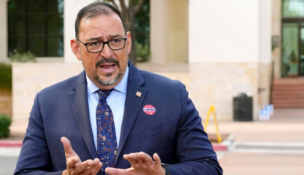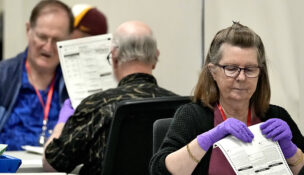State seeks court approval to take $7M from First Things First
Arizona Capitol Reports Staff//May 1, 2009//[read_meter]
State seeks court approval to take $7M from First Things First
Arizona Capitol Reports Staff//May 1, 2009//[read_meter]
State attorneys on April 27 filed a response with the Arizona Supreme Court to defend the Legislature’s 2009 sweep of millions of dollars in interest from revenue earmarked by voters...
No tags for this post.

















